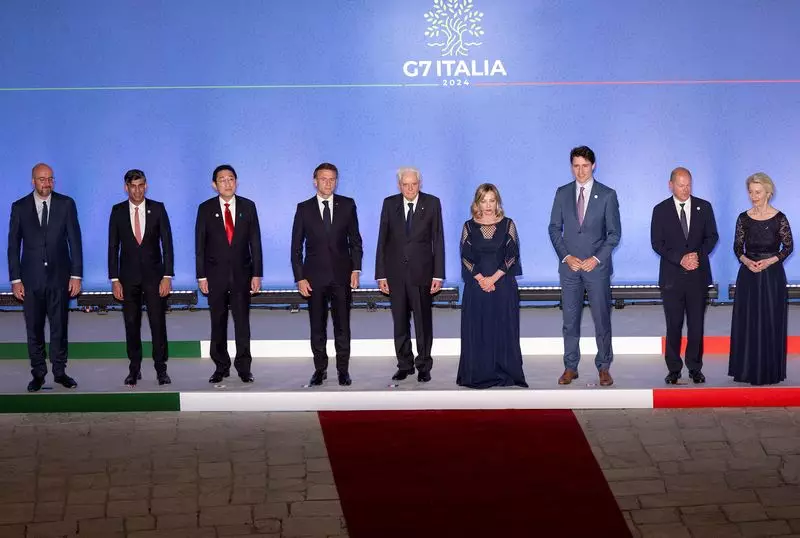The recent G7 summit held in Italy saw a historic agreement among member nations to provide $50 billion in loans for Ukraine, backed by interest from frozen Russian assets. This decision was hailed as a powerful signal of Western unity and resolve. German Chancellor Olaf Scholz described the move as a significant step in sending a message to Russian President Vladimir Putin that his attempts to destabilize Ukraine will not go unanswered. The involvement of the G7 nations, along with the European Union, showcases a coordinated effort to support Ukraine in the face of Russian aggression.
While the first day of talks primarily focused on Ukraine, the spotlight shifted to China on the second day of the summit. Leaders expressed concerns about China’s excessive industrial capacity and its support for Russia. The United States imposed fresh sanctions on Chinese firms supplying semiconductors to Russia, citing Beijing’s aggressive stance towards Taiwan and territorial disputes with neighboring countries. The European Union also announced plans to impose additional duties on imported Chinese electric cars, highlighting ongoing tensions between China and Western nations.
One of the key highlights of the summit was Pope Francis’ participation, marking the first time a pontiff has attended a G7 gathering. The Pope’s speech on artificial intelligence underscored the importance of ethical considerations in technological advancements. In addition to addressing AI, the Pope held bilateral meetings with world leaders, including President Joe Biden, President Volodymyr Zelenskiy, and President Tayyip Erdogan. The Pope’s presence added a unique dimension to the discussions on various global issues, including immigration and development aid.
Italian Prime Minister Giorgia Meloni emphasized the significance of discussing immigration at the summit, particularly in light of the ongoing challenges faced by European countries. Meloni’s push for increased support to curb illegal migration flows from Africa reflects the complex issues surrounding immigration policy. The summit also focused on promoting development in African countries as a long-term solution to address the root causes of migration. This holistic approach towards immigration highlights the interconnectedness of global issues and the need for coordinated efforts to find sustainable solutions.
The G7 summit in Italy served as a platform for leaders to address pressing global challenges, ranging from financial aid to geopolitical tensions and technological advancements. The unity displayed among member nations in supporting Ukraine and the collaborative efforts to address China’s actions demonstrate a shared commitment to upholding international norms and values. The presence of Pope Francis and discussions on AI added a unique perspective to the summit, emphasizing the importance of ethical considerations in policymaking. As the leaders departed from Italy, the agreements and decisions reached at the summit are poised to impact global governance and cooperation in the coming months.

